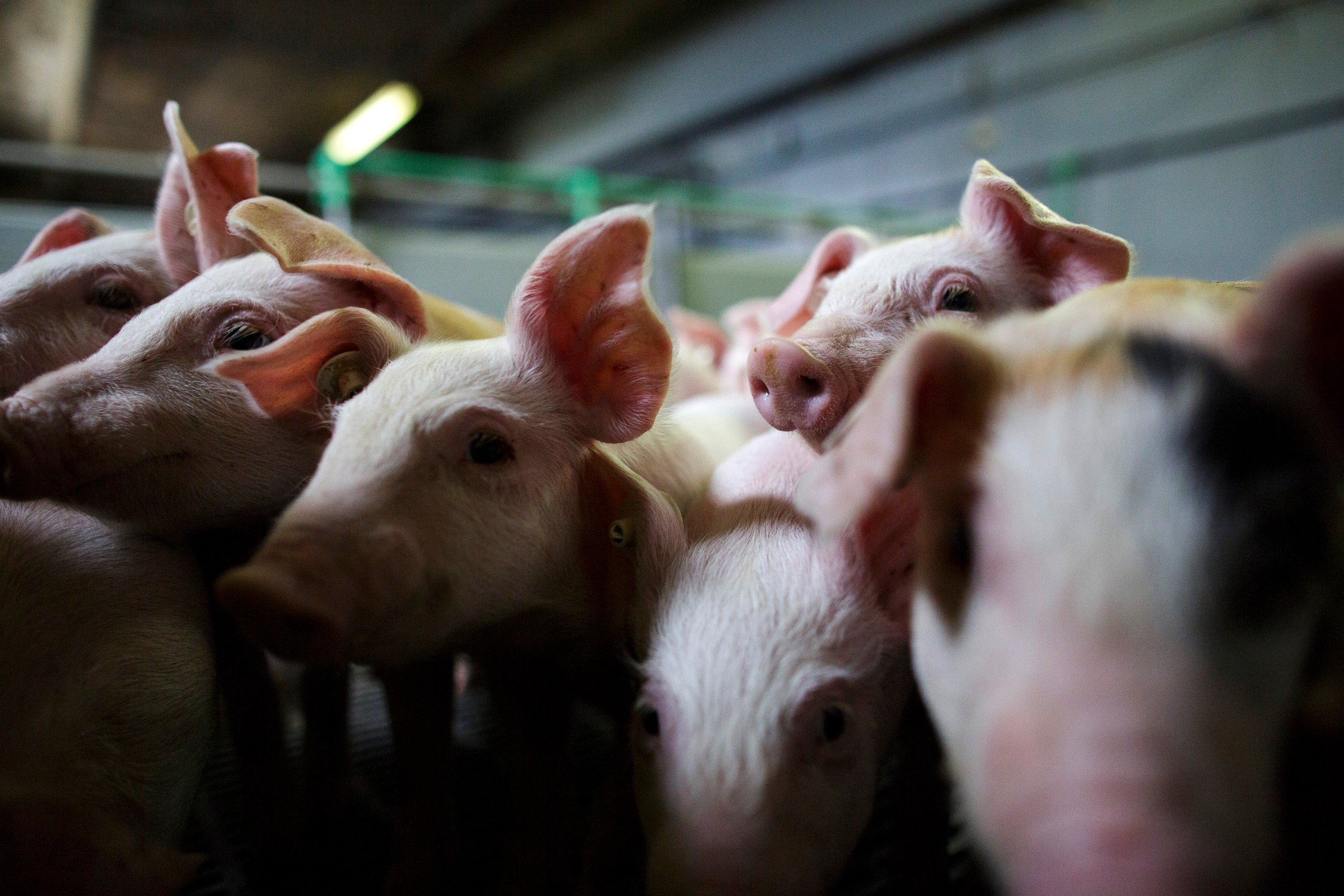
About 80% of antibiotics worldwide are used in animals, something health experts say is contributing to the growing problem of antibiotic resistance, in which common infections no longer respond to the drugs used to treat them. Now the the World Health Organization (WHO) has released new recommendations for antibiotic use in animals, taking a strong position that the use of medically important antibiotics should be substantially dialed back, and that the use of antibiotics for growth promotion should be banned altogether.
The WHO is also recommending that healthy animals only receive antibiotics to prevent illness if a disease is already diagnosed in that animal’s flock or herd. When veterinarians do treat animals, the WHO says they should only use mediations that are of least importance to human health (the agency provides a list).
Antibiotics that are used in animals are either identical or very similar to antibiotics used in humans, which is why they contribute to the increase in infections among humans who don’t respond to the drugs. The WHO says that potential consequences from completely restricting antibiotics for growth promotion “appear to be relatively small or non-existent.”
Read more: It’s Been One Year Since the World Took On Superbugs. Here’s What’s Changed
Whether countries will heed the new recommendations remains to be seen. “Countries will follow these guidelines if they are sufficiently impressed with how urgent this crisis is and if they have good leadership,” says Dr. David Wallinga, a senior health officer at the Natural Resources Defense Council (NRDC).
Wallinga, who served on the WHO’s guidelines development group, calls the recommendations “terrific,” adding that some countries already follow these best practices. “I think [the guidelines] can work because it has worked,” he says. “We have several examples of countries that have enacted these steps exactly and have seen remarkable decreases in their overall use of medically important antibiotics in just a couple years.”
The Netherlands, for example, has reduced antibiotic use in animals by nearly 60%, and Namibia no longer uses antibiotics in its beef production. In 2006, the European Union banned the use of antibiotics in animals for growth promotion. The U.S. just officially restricted the use of antibiotics for growth promotion in 2017.
Read more: Why Bacteria Are More Threatening Than Ever
Consumer support for more judicious antibiotics use has also led to major changes in industry behavior. Both McDonald’s and Tyson are no longer using antibiotics that are important to human medicine, for example.
Still, experts more needs to be done across agriculture, medicine and drug development to get ahead of the problem. In the U.S. at least two million people contract infections that are resistant to infections and at least 23,000 people will die from them every year.
“A lack of effective antibiotics is as serious a security threat as a sudden and deadly disease outbreak,” Dr. Tedros Adhanom Ghebreyesus, the director general of the WHO, said in a statement about the new report. “Strong, sustained action across all sectors is vital if we are to turn back the tide of antimicrobial resistance and keep the world safe.”
More Must-Reads From TIME
- The 100 Most Influential People of 2024
- The Revolution of Yulia Navalnaya
- 6 Compliments That Land Every Time
- What's the Deal With the Bitcoin Halving?
- If You're Dating Right Now , You're Brave: Column
- The AI That Could Heal a Divided Internet
- Fallout Is a Brilliant Model for the Future of Video Game Adaptations
- Want Weekly Recs on What to Watch, Read, and More? Sign Up for Worth Your Time
Contact us at letters@time.com